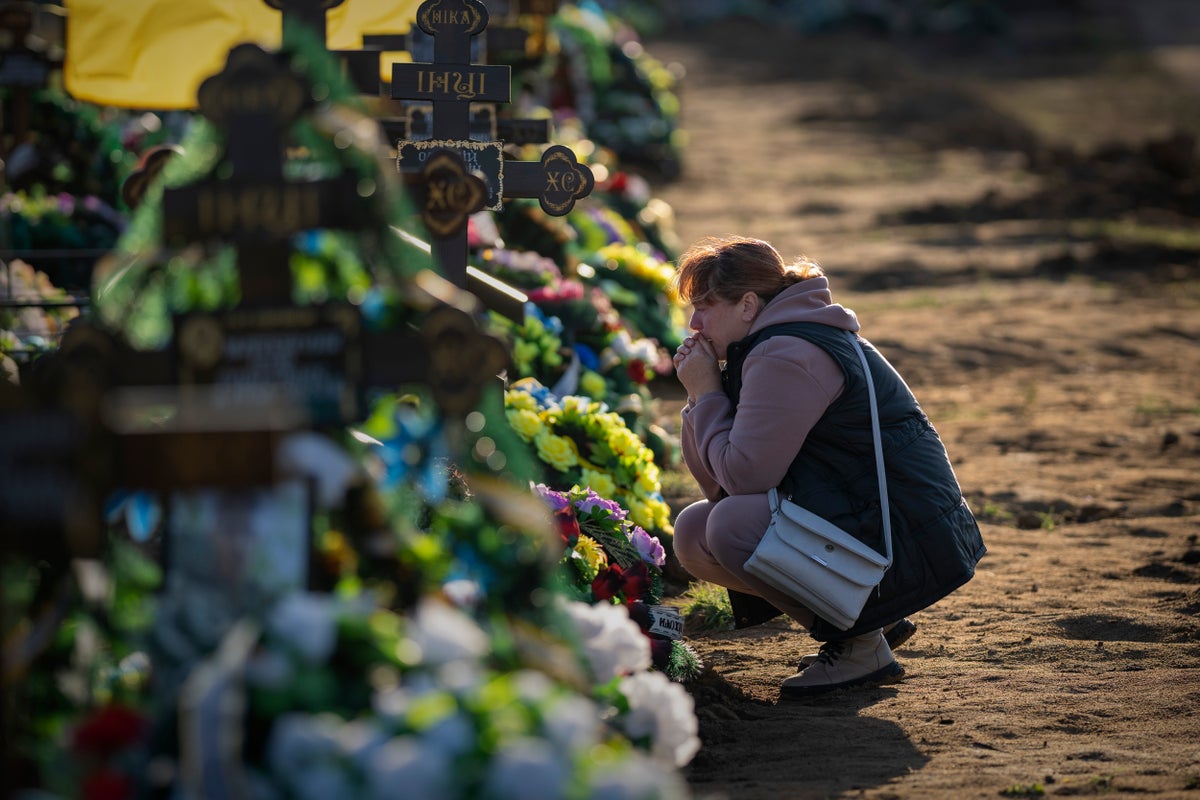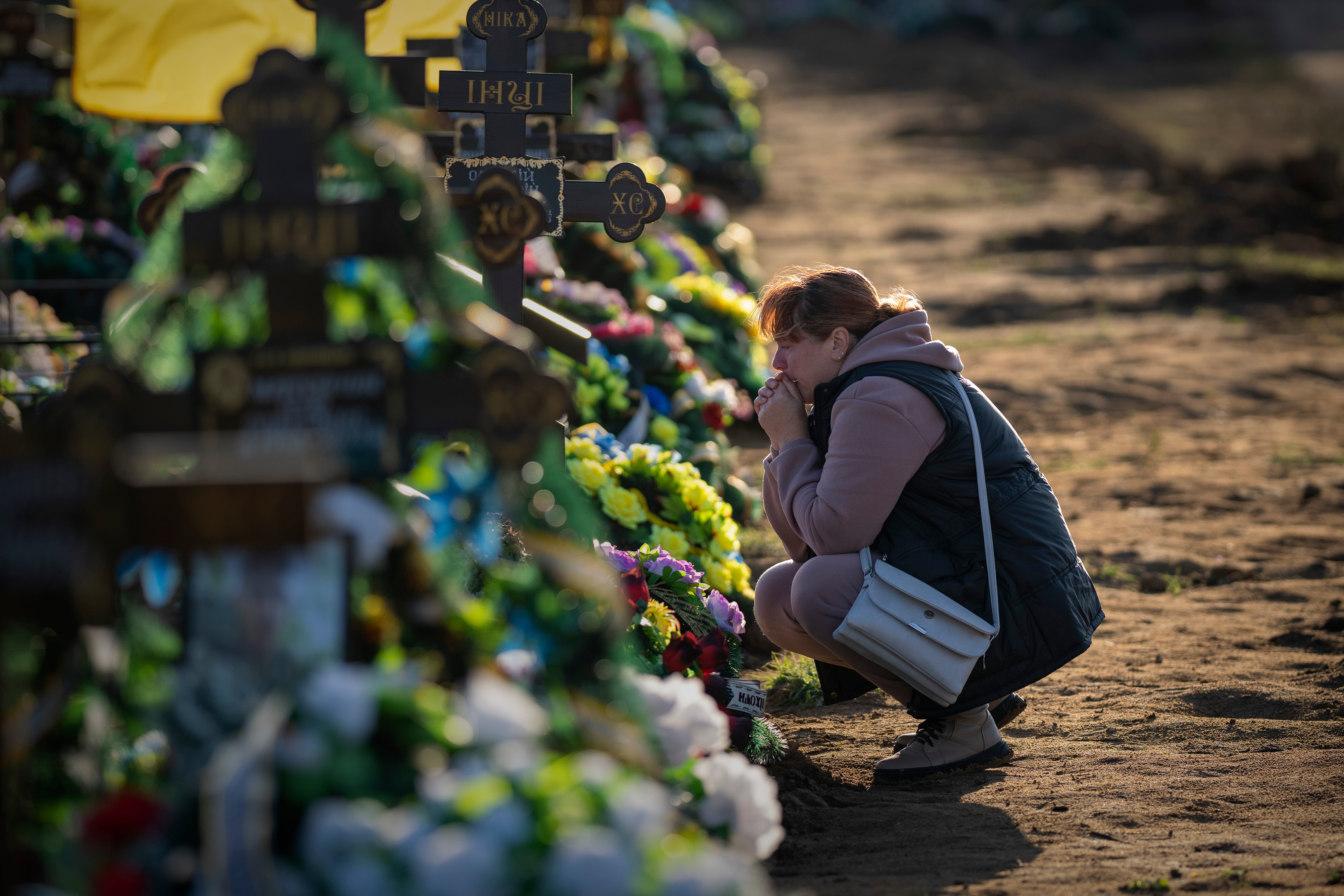
A total of 200,000 soldiers and 40,000 Ukrainian civilians have been killed in the nine months Russia invaded Ukraine, a top US general has said.
Mark Milley, chairman of the Joint Chiefs of Staff, said “well over” 100,000 Russian soldiers have been killed or wounded in Vladimir Putin’s war, adding that the Ukraine’s casualties is the “same thing probably”.
Speaking at The Economic Club of New York, he said: “There has been a tremendous amount of suffering, human suffering.”
It comes as Russia announced this week that it has begun a retreat from Kherson, where civilians were evacuated in masses ealier this month as the streets prepared for battle.
But now Moscow has said it open to peace talks after Ukrainian president Volodymyr Zelensky said on Tuesday he would consider talks to end the war, but only on the condition that Russia return all of Ukraine’s occupied lands, provide compensation for war damage and face prosecution for war crimes.
Mr Zelensky also warned that the Russians are feigning a pullout from Kherson to lure the Ukrainian army into an entrenched battle in the strategic industrial port city, a gateway to the Russian-occupied Crimean Peninsula.

Mr Milley, the highest-ranking US military officer, said Russia had amassed 20,000 to 30,000 troops in Kherson and a full retreat could take several weeks.
“The initial indicators are they are in fact doing it. They made the public announcement they’re doing it. I believe they’re doing it in order to preserve their force to re-establish defensive lines south of the (Dnieper) river, but that remains to be seen,” he said.
He said it is possible the Russians will use the retreat to reset their troops for a spring offensive but “there’s also an opportunity here, a window of opportunity for negotiation”.
But for negotiations to have a chance, both Russia and Ukraine would have to reach a “mutual recognition” that a military victory “is maybe not achievable through military means, and therefore you need to turn to other means,” Mr Milley said, citing the end of the First World War as an example.







